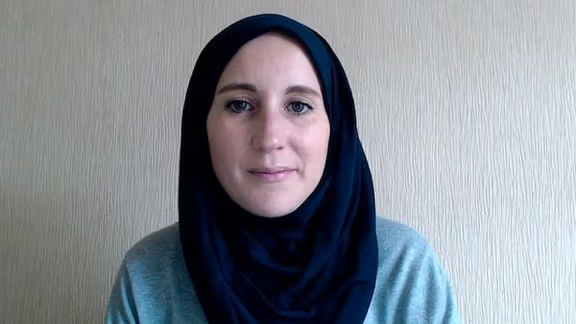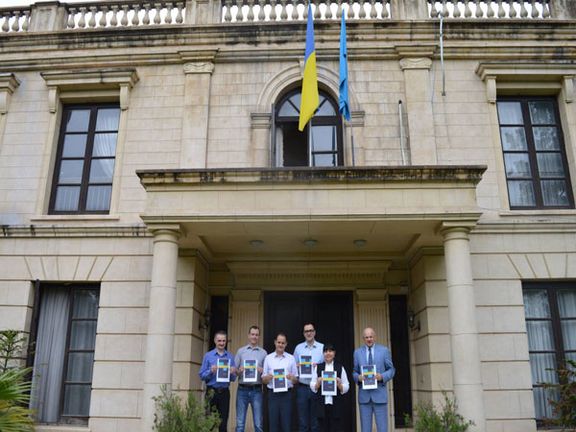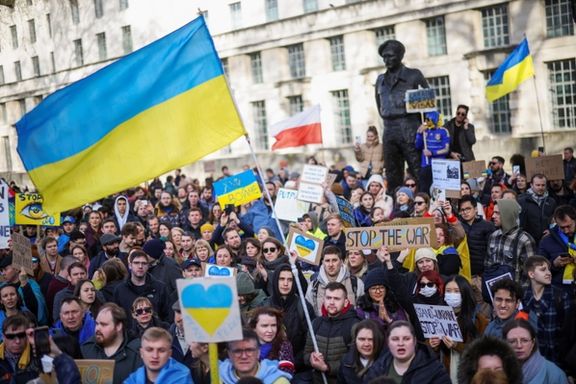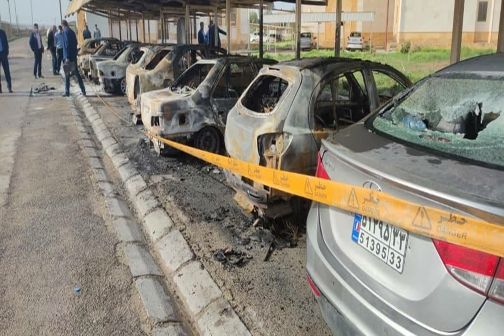Limited Refining Capacity, Smuggling Force Iran To Import Fuel

Iran has started importing diesel fuel again because the amount of its consumption has surpassed the production capacity of the country’s refineries.

Iran has started importing diesel fuel again because the amount of its consumption has surpassed the production capacity of the country’s refineries.
An unnamed informed source told Mehr news agency on Saturday that the resumption of imports was not unexpected due to the imbalance between demand and supply.
The source added that Iran is importing diesel from countries to the north along the Caspian Sea, without elaborating on the exact supplier. Russia could be one possible source.
According to the source, gasoline imports will also start soon because consumption will exceed production at refineries.
Mehr says according to data by the National Iranian Oil Refining and Distribution Company (NIOPDC), the amount of gasoline production and demand will be equal in a couple of weeks.
NIOPDC head Keramat Veis-Karami recently said that the average daily gasoline consumption increased by about 15 percent this year compared with the figure in the previous year when there were frequent pandemic restrictions.
The report added that slowdown in the process of building refineries and the rise in consumption are the reasons for Iran to become a gasoline importer. The severe shortage of natural gas that has led to an increase in diesel consumption in power plants and industries can be another factor. American sanctions also play a role in slowing down refinery upkeep.
However, in January, the Washington Post uncovered a large diesel smuggling network, revealing the role of the Revolutionary Guard in the illicit trade.

An “Israeli” journalist “infiltrated” Iranian Supreme Leader Ali' Khamenei's website, according to a post by supporters of former president Mahmoud Ahmadinejad.
But Catherine Shakdam has been variously a contributor to Iranian official media, to United States-based outlets, and to Russian state-owned RT. She has been a French-born Jew, a UK resident, and a convert to Shiism.
In a post headlined "Writer of Ayatollah Khamenei's Website, An Israeli Infiltrator in Media Outlets of Supreme Leader's Office and IRGC [Revolutionary Guards],” the Sols Media Telegram channel claimed Shakdam, who had published articles on Khamenei's website and in major state-affiliated media outlets, was an Israeli “infiltrator."
In less than a day, the post was seen by nearly 10,000 Telegram users.
Ahmadinejad and his supporters are not allowed to publish their own newspapers or appear in state-controlled media. Instead, they use Telegram for 'revelations' and to promote his political views. In less than a day, the controversial post about ‘infiltration’ of Khamenei's office and state media has been seen by nearly 10,000 Telegram users.
The Telegram claim was based on a blog published over two months ago in The Times of Israel written by Shakdam, who traveled to Iran in 2017 to interview then presidential candidate Ebrahim Raisi. In the blog, Shakdam claimed she had pretended to be a Muslim, did not mention her earlier conversion, and gave no indication how she had written for Khamenei’s website (Khamenei.ir) or other Iranian outlets.
Sols Media reported that the articles Shakdam wrote for Khamenei's website had been completely removed but provided a link to an internet archive website where 18 can be accessed.
Over a period of several years, Iranian state-run media such as the English-language Press TV and the national broadcaster (IRIB) interviewed Shakdam, introduced as "political analyst and author based in London," while the Tasnim and Mehr news agencies published her articles.
Press TV has now removed programs featuring Shakdam from its archives, although her name still appears on its website in a few places. Many of her articles remain on Tasnim and Mehr websites. Tehran Times and some other Iranian publications have removed her articles too.
True motivations
"Keen to be let in to [Iran], I neither argued nor revealed my true motivations,” Shakdam wrote in The Times of Israel. “I realized pretty early on that if I was to witness first-hand what it is that the region [Islam] is really about, I’d better blend in and listen.”
Shakdam said it had been "fascinating” for her to find out in Iran “how Islam’s disdain for women" and "its communities’ propensity to disappear a wife to her husband’s identity" could absolutely “wash her” of her Jewish ancestry.
Despite her ‘discovery’ of this ‘disdain,’ Shakdam apparently earlier converted to Shia Islam and married a Yemeni Muslim. She has written for the state-owned Russian site, RT.com, where she argued in 2017 that “Saudi Arabia’s war crimes have become much too unpalatable for any responsible power to entertain.” RT describes her as a former consultant on Yemen for the United Nations Security Council.
The Huffingdon Post website, where in 2018 Shakdam wrote the US was becoming “a dictatorial police-state,” describes her as “the Executive Director of PASI (Prince Ali Seraj of Afghanistan Institute for Peace and Reconstruction) …[as well as] director and founder of Veritas-Consulting.”
Shakram claimed ‘free pass’
In the Times of Israel piece, Shakdam claimed she had been introduced to Raisi by a US-educated person whom she called "one of the main propagandists of the Islamic Revolution." Her patron's vote of confidence for her good morals, she wrote, was enough to secure her the “one interview” most westerners were denied.
She claimed that "a girl like me” had ended up where few people with Jewish ancestry were ever allowed to enter either because she had been lucky or as a "result of a hunger so fierce" in the Iranian media for "rallying western thinkers to Iran’s cause.”
"I nevertheless walked right into the belly of the Beast – invitation in hand, by the request of the very government whose motto calls for the death of all Jews and the annihilation of Israel," Shakdam wrote for the Times of Israel. She also boasted that her holding a French passport and former marriage to a Yemeni Muslim gave her "a free pass to many Islamic countries."
The is social footage of Shakdam speaking with enthusiasm of Shiism. She appeared in hijab in interviews with Iranian media but not in other photos, for The Times of Israel and for RT.She is the author of Arabia’s Rising - Under The Banner Of The First Imam.

A group of Iranians has planned a demonstration at the Ukrainian embassy in the capital Tehran to express sympathy for Ukraine as Russia sent 100,000 troops to occupy the country.
The gathering is scheduled to start at 19:00 (local time) in front of the embassy building where people plan to hold a candlelight vigil for the lives lost during the Russian invasion.
It is still not clear if Iran’s government, an ally of Russia, will permit the gathering.
Many social media users have said that the rally should be instead held in front of the Russian embassy, but the likelihood of authorities not allowing a gathering there is much higher.
Russia’s attacks on the capital Kyiv and several other cities have been met with fierce resistance, with President Volodymyr Zelensky saying that “The occupiers wanted to block the center of our state... We broke their plan.”
Iran officially blames US and NATO's “provocations” for the crisis, reiterating support for the Russian invasion.
Iran's state television, operating under the control of Supreme Leader Ali Khamenei, has been supporting Russia's invasion of Ukraine during the past three days.
As President Ebrahim Raisi rushed to express support for Russia on the first day of the invasion, observers on social media said the sheer fact that he called Vladimir Putin in this situation, put the Islamic Republic in an embarrassing situation.

Two Tehran newspapers affiliated with the office of Supreme Leader Ali Khamenei presented conflicting views about Russia's invasion of Ukraine on Saturday.
Iranian officials, including President Ebrahim Raisi, and some media outlets have supported Russia’s actions by blaming NATO and the United States for provoking Moscow.
Meanwhile, reports from Tehran say groups of Iranians have asked for the government's permission for a protest gathering Saturday afternoon in front of the Ukrainian Embassy in Tehran Saturday evening to show their anger at the invasion.
The hardliner daily Kayhan, which always supports Russia and maintains tough anti-US rhetoric, warned other countries and probably cautioned its pro-Khamenei readers that "The United States has once again abandoned one of its allies" and maintained that "Pro-Western individuals should take a lesson from This."
The daily quoted Ukrainian President Volodymyr Zelensky as having said that "The westerners watched the situation from afar and left us alone," a statement that could be part of Russia or Kayhan's propaganda effort.
The Kayhan continued that during the past decades the United States has abandoned several of its allies after pushing them into crises. The daily mentioned former Afghan President Ashraf Ghani as an example and quoted him as saying the "I wish I had not trusted the Westerners."
Kayhan, which has been backing Russia's invasion of Ukraine during the past two days, carried extensive reports and commentaries supporting Russia's position in an exaggerated tone. On the other hand, Jomhouri Eslami, a newspaper whose proprietor is no one but Ali Khamenei, has been taking a more pragmatist position.
In its editorial on Saturday, Jomhouri Eslami reminded that "Russians are as untrustworthy as the Americans. "The Russian's record of invasion of Iran's Azarbaijan and Gilan provinces in early and mid-twentieth century, as well as their shelling of the holy shrine of Imam Reza [the 8th Shiite Imam] in Mashhad and its support for Saddam Hussain's Iraq in the 1980s war against Iran shows this reality quite clearly."
The editorial also observed that Iranian position of Iranian officials regarding the invasion of Ukraine cannot be ignored. "The stances declared by Iranian officials about the invasion contradict the principles of the Islamic Republic. Russia has clearly violated Ukraine's sovereignty and military occupation of a country is against international regulations and ethical values. Therefore, the officials of the Islamic Republic should unreservedly and clearly condemn Russia's warmongering and remind Russian leaders that the right thing to settle disputes is dialogue between Moscow and Kyiv.”
The contradictory views expressed by two newspapers published by Khamenei's office might show that the Islamic Republic's leader has been prompted to balance the government's stances toward the Ukrainian crisis. This is particularly important as regime insiders such as former lawmaker Ali Motahari have said that Iranian officials are behaving in a way as if Iran is a Russian Colony.
In another development Reformist commentator Sadegh Zibakalam has apologized in a tweet to the Ukrainian people for Iran’s support of Russia and asked them to understand that it is not easy for Iranians to publicly oppose Russia's policy and actions.
Meanwhile, former Iranian diplomat Hossein Mousavian, holding an academic post at Princeton University, also criticized Iranian officials including President Ebrahim Raisi and Security Chief Ali Shamkhani's pro-Russian statements and said that making such statements are contrary to Tehran's interests.

Iranian human rights activist Soheila Hejab suffering from Covid has been transferred to hospital following cardiac arrest after days of neglect in a prison in Iran.
According to the US-based Human Rights Activists News Agency (HRANA), Hejab was taken to a critical care unit (CCU) at a Kermanshah hospital on Thursday after she passed out following days of struggle with a severe case of Covid-19 along with 13 other inmates in her ward.
Hejab was sentenced to 18 years in July 2020 for "propaganda against the regime", "forming a women's rights group" and "calling for a referendum to change the Constitution", by notorious judge Mohammad Moghiseh.
She was first arrested in Shiraz in January 2018, and after five months at Adel-Abad Prison in the same city, Hejab who hails from a Kurdish family from Kermanshah was pardoned and freed. She was violently arrested again in June 2019 by IRGC intelligence, taken to Evin prison, and later released on a large bail.
In May 2020 she was arrested again by Revolutionary Guards' Intelligence Organization and was taken to Qarchak Prison for women in the south of the capital. She was then transferred to Kermansah prison in early January.
Earlier in the year, Iranian poet Baktash Abtin died of Covid-19 complications following a medically induced coma after he was denied timely treatment by officials at Evin prison, Tehran.

A petrochemical company in southern Iran has come under attack reportedly by armed men, igniting a big fire that burned nearly a dozen vehicles.
According to ISNA, the incident took place in the Rahavaran Fonoun petrochemical company – owned by the Persian Gulf Petrochemical Industries Corporation, aka Persian Gulf Holding -- in the port city of Mahshahr in Khuzestan province early on Saturday.
The details of the attack are not released yet but according to reports armed men entered the premises of the company, broke the windows of the security compound, and set the cars in the parking area on fire.
The public relations manager of the firm, Hamid Danesh, told Fars news that “breaking the windows of the security compound, like in this incident, clashing with the security forces of the company and also theft have been among similar cases in recent months."
Head of Public Relations of Mahshahr Petrochemical Special Economic Zone Organization, Mohsen Adib, told ISNA that the incident was not “a terrorist attack” but it had a “security dimension” without providing further details.
Earlier in November, an oil and gas pipeline in Khuzestan province exploded and caught fire in what the official media said was the result of metal “fatigue”.